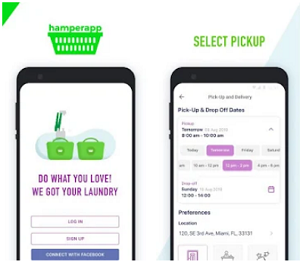Keeping your gadgets away from the opportunistic hands of
thieves means a lot more today than it did 10 years ago. Back then, losing a
device meant you were out hundreds of dollars—no small amount by any means, but
at least the damage was limited to the theft itself. These days, our heightened
level of connectivity means that your smartphone is the gateway to your
electronic life, with online accounts full of sensitive information available
with a few finger swipes.
Even with all the changes that have taken place in our
technological ecosystem in a few brief years, one thing has remained constant:
vacation hotspots and tourist destinations are still easy places for your
gadgets to get “adopted” by someone new, with thieves only requiring a moment
or two or inattentiveness. Considering how important it is to your financial
life to keep your electronic tools safe, here are 4 ways to prevent gadget
theft while traveling:
Travel Safes
These aren’t the bowling ball-sized portable safes that can
be easily carried out of your hotel room by a thief and then opened at his
leisure. Modern travel safes come in a variety of designs, but one of the more
common ones is a sturdy, collapsible canvas sack reinforced with flexible,
stainless steel wire to provide a cut-resistant surface. You put your
belongings in the bag, lock it shut, then attach it with tamperproof cables to
a sturdy holding, such as a pipe, radiator, or other structure.
These safes won’t keep a truly dedicated interloper away
from your prized possessions for long, but if properly used they provide a
fairly reliable method of protection against smash-and-grab thieves and other
crimes of opportunity
Money Belts
In the eternal struggle against petty pickpockets, money
belts have been making somewhat of a comeback, and many of them now have
dedicated slots for smartphones. The pouches are made thin enough these days
that it won’t look like you’re wearing a fanny pack underneath your shirt,
which is a benefit for both your overall safety against pickpockets and your
fashion sense.
Deceptive Covers
Another growing trend is the use of tablet and smartphone
cases that mask the fact that they’re protecting a gadget, usually by
resembling a book or other, far cheaper object. If this option is interesting,
you may find better luck with disguising your tablet than your smartphone: many
of the phone covers tend to resemble a bulky wallet, which isn’t exactly a
turn-off to thieves. But there are a variety of tablet covers that do a fairly
passable imitation of a hardcover book or journal; they won’t fool anybody up
close for more than a few seconds, but they may be enough for a pickpocket
who’s quickly scanning the crowd for an easy mark to overlook you.
Anti-Theft Travel Bags
Coming in a wide variety of sizes and styles, anti-theft
travel bags have a series of buttons, zippers, and hidden compartments to stash
your valuables as you roam about on your tourist adventures. Depending on how
much you want to spend, you can get a simple carrying bag with a bit of extra
protection against the light-fingered denizens of society, or a full-blown bank
vault in canvas form with dozens of protective layers used to keep its pockets
closed for everyone but you. If you don’t mind it taking several minutes for
you to dig your smartphone or tablet out from under all that security,
anti-theft travel bags may be the way to go.
In addition to keeping your gadgets from getting stolen, you
should try to do away with automatic logins for your various online accounts.
Despite how annoying it is to peck out your 20-character Netflix password every
time you want access, doing so prevents a thief from automatically jumping into
your account and effortlessly acquiring your credit or debit card number,
address, and other billing info. If you’re already out $400-600 for a phone,
tablet, or laptop, the least you can do is make sure that your checking account
won’t be drained before you can even get online again.
Author bio:
John is a blogger who constantly struggles to remove the
automatic logins for his accounts, despite losing one smartphone in his
consumer career already. He writes for Internet insurer Protect Your
Bubble, who can provide the kind of identity theft insurance that helps you
deal with the disaster of someone else getting your personal info from your
smartphone, tablet, or other gadgets.



